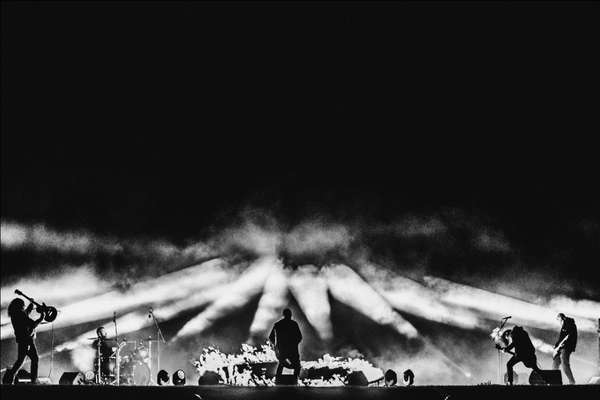Marissa Nadler has been releasing albums since 2004, and her meticulous constructions of dream states has been astonishing since the first notes of “Fifty Five Falls.” Through the years, Nadler has shown her aptitude in songwriting, not solely by awakening an emotional response with her music, but also with a sense of certainty that became more and more apparent in her work as time passed. It was not just choice of melodies, or when those are introduced, but a serenity that arose in her works. Various releases have helped in perfecting that approach, with albums such as Sister and July being fundamental in building up for the release of her latest full-length, Strangers, as was her work with bands such as Xasthur and Wrekmeister Harmonies, seeing Nadler being open to explore some diverse sounds.
Everything begins on a folk level with Strangers. That is where the roots of the album lie, and Nadler is perfectly adept in the genre, with moments such as “Dissolve” and the more groovy “Shadow Show Diane,” bringing that characteristic to the forefront. The melodic phrases of Strangers enrich this setting, adding more depth and emotion to the various passages, making the process very personal. The guitar in the beginning of “Katie I Know” is such an example, before the more solid form of the track settles in.
The folk tone of Strangers, as was the case with most of Nadler's work, does not retain an earthy element, but it rather spreads beyond. It feels at times that this is a record stuck somewhere between the real world and an illusion, as Nadler is able to establish a hazy, dream domain. The sense of melancholy is very fitting, and the ethereal aspect of moments such as the opening track, “Divers of The Dust,” are able to plunge you down this otherworldly dimension. The further you advance in the album, moments like that keep appearing, creating a distinct dream pop sense. “Hungry Is The Ghost” and “Janie In Love” venture forth in a hybrid folk/dream pop bliss, while the repetitive notion of “Waking” adds a bit more darkness to Nadler's concepts.
But, what really separates Nadler is a sense of experimentation. And, it is not just that she is happy to add synthesizers or additional instrumentation to her parts, but the manner in which that is done. “Skyscraper” for instance, might be following a quite standard, folk progression, but the sudden inclusion of electronic elements is able to transform the tone of the track. The strange thing is that it does not feel that the experimental edge is fighting the folk tone, but rather enhancing its effect, as the two co-exist in a bizarre union (which feels perfectly normal! Baffling, I know.)
It comes down to how well Nadler can structure her work. Not just in terms of the songwriting, but in how all the elements of her music inhabit the space. As easily as she is able to add the pedal steel guitar to give a more country vibe, an electric guitar to enrich the background, a Hammond organ to give a more retro vibe, a violin to add more emotion, or the synthesizers to create more daring compositions, she is always able to pull it off. That has been the case through most of her career, but the heights that she reaches with Strangers are far above.






